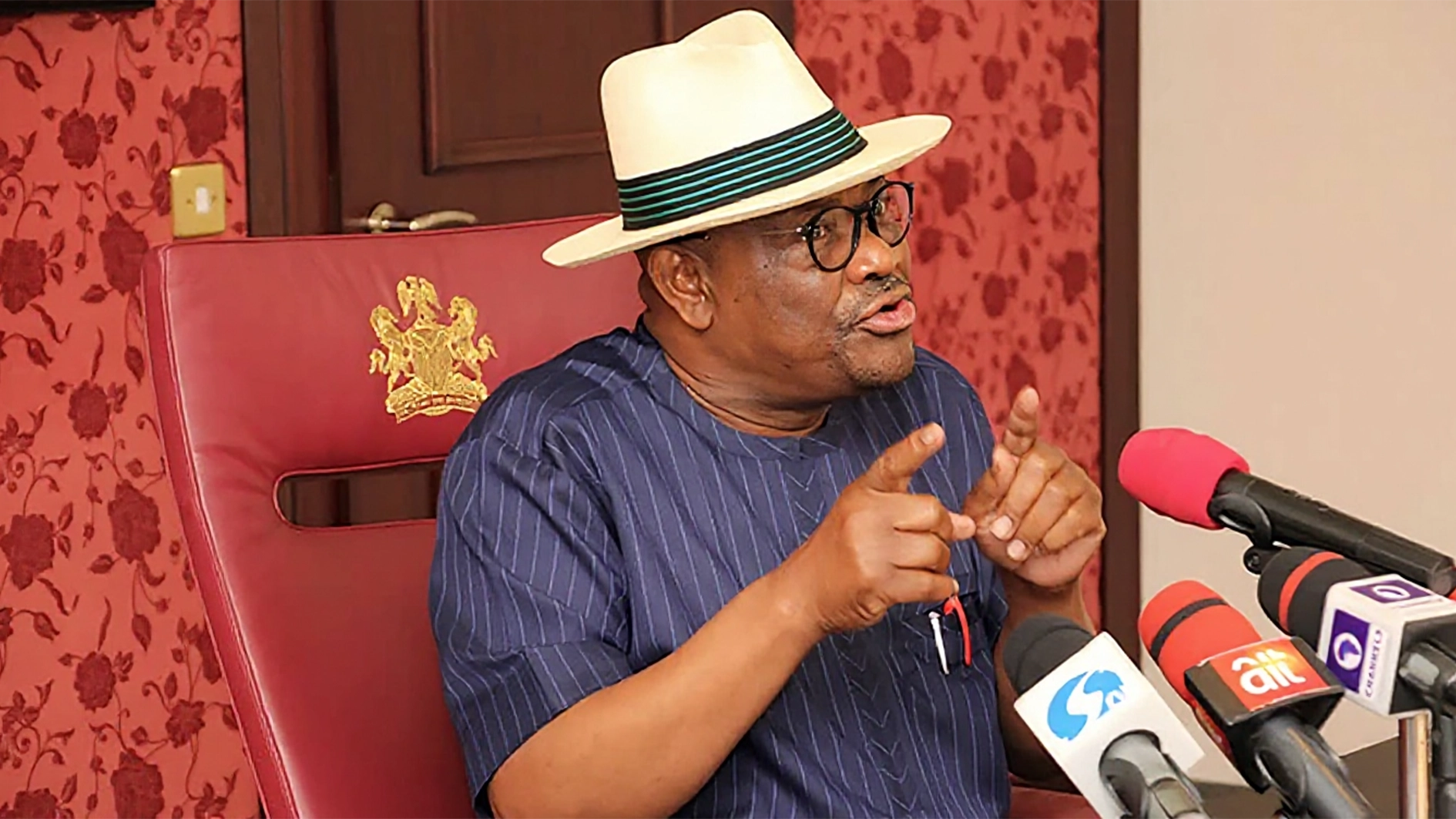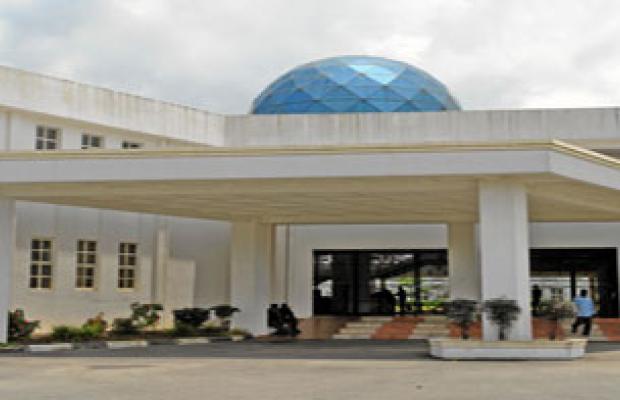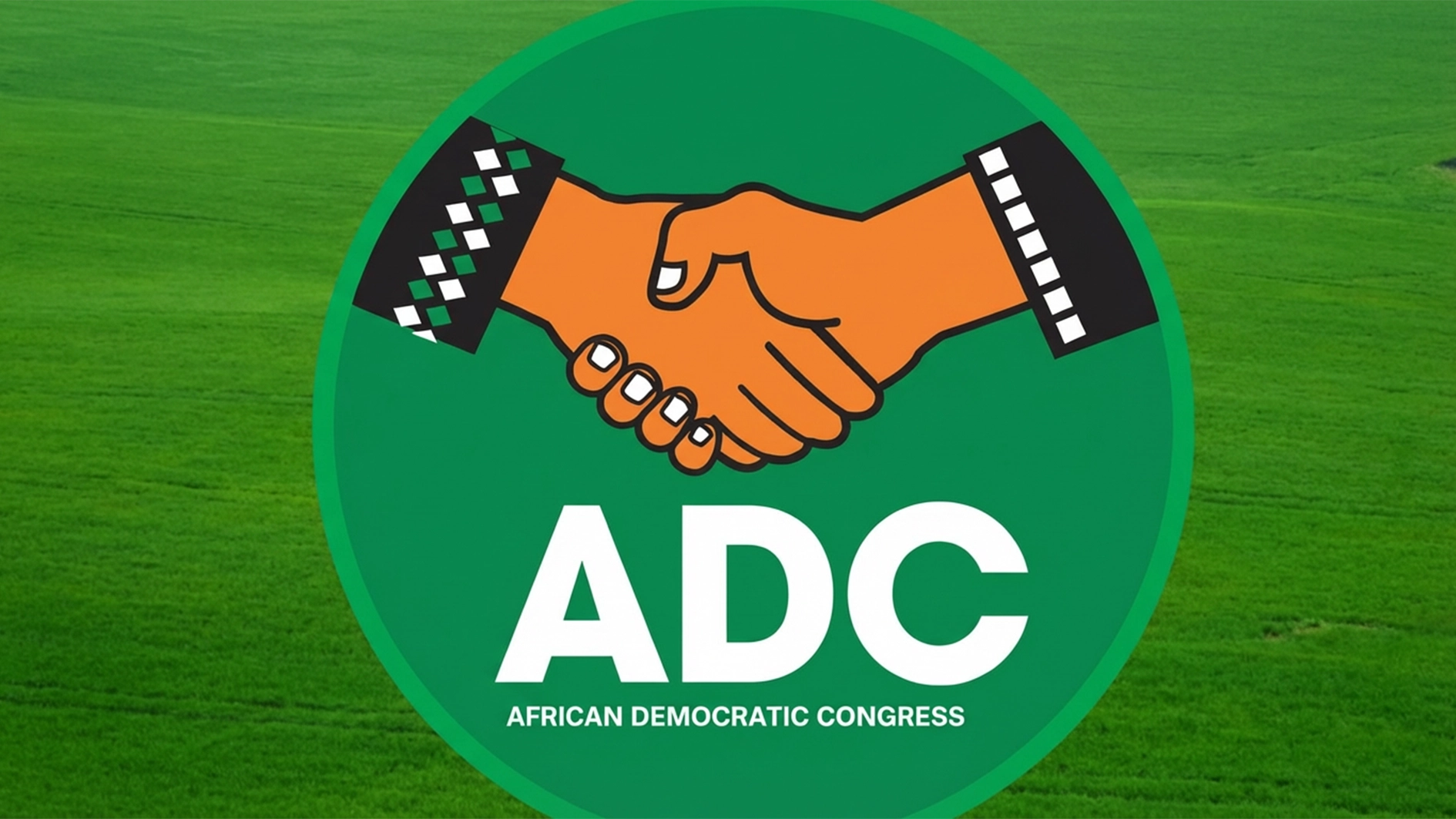
The governorship election in Bayelsa State is barely two weeks away. And besides the intense politicking that has accompanied the preparations for all stakeholders and parties involved in the upcoming election, expectations and the stakes are high.
For the average resident, it is also about the first time that they look forward to a governorship election that will largely be violence-free, if the posturing of Governor Douye Diri since the preparations for the contest hit fever-pitch is anything to go by.
Recall that in the build up, Governor Diri had told everyone who cared to listen that his desire to get re-elected isn’t worth the blood of any Bayelsan.
As stakeholders look forward to Election Day, however, there seem to be an alignment of forces, both divine and otherwise, to ensure that the incumbent is returned on November 11; what with the sequence of occurrences that has been unfolding in the state’s political space, even in recent times.
To add to this alignment in Diri’s favour, from the State in the heart of the Niger Delta, nestled amidst the tranquil waterways and lush greenery, there have also been a symphony of voices echoing through, proclaiming Diri as the one to launch the final voyage of Bayelsans to the promise land.
From the bustling markets of Yenagoa to the serene villages along the creeks, the people of the coastal haven shared their thoughts, aspirations, and sentiments in a harmonious crescendo of data.
In a poll conducted by an independent group, Precious Hands & Brains Consult Nigeria Limited, under the coordination of Abraham Ogbodo, former Editor of The Guardian, the voices of Bayelsans were collected in a manner that is representative using Stratified Random Sampling method. The research technique meticulously divided Bayelsa State into its eight local councils. And, strikingly, the harmony of their experiences painted a vivid portrait of life having been good in Bayelsa under the leadership of Governor Douye Diri.
In Nembe, a land of natural beauty and cultural richness, the people shared their hopes, dreams, and the challenges that lay before them. Data were gathered meticulously from 125 individuals who graciously shared their thoughts, dreams, and visions for their community.
An overwhelming 72 percent of respondents, mostly women cited Governor Diri’s simplicity as their primary attraction. In a resounding chorus of approval, 80 percent of respondents believe that Diri has faithfully fulfilled his campaign promises to the people of Nembe. The overwhelming vote of confidence reflects the tangible impact of his governance and underscores his effectiveness in the eyes of the local populace. His administration receives resounding applause for its achievements in several critical areas such as infrastructure development, youth and women empowerment, health, and education. These accolades signify a recognition of tangible progress made in enhancing the quality of life and opportunities for the community.
However, a notable omission emerges where the governor may seek room for improvement in his public image. Nembe people, majority of people in this community get their information through townhall meetings, want their governor to pay attention to agriculture and security, to create an environment where families can live without fear, businesses can flourish, and the overall quality of life can be enhanced.
In Southern Ijaw, participants not fewer than 135 responded to questions about the governance of Governor Diri, majority of whom were men (66.7 %), and rest 33.3% were women. The data overwhelmingly supports the notion that the governor has diligently fulfilled his commitments to the people of Southern Ijaw, with high praise for achievements in infrastructural development, security, and education. However, the data also emphasizes the community’s collective desire for increased focus on education and the development of rural healthcare centers, recognizing these areas as crucial for a brighter and healthier future. The majority of respondents, who rely more on radio as channel of information, expressed strong support for the Governor’s second term, displaying confidence in his leadership.
In Kolokoma, the survey revealed a nearly balanced participation of 58.8 percent male and 41.2 percent female respondents.
A larger number of respondents admired Diri for his simplicity (64.6%), yearning for grounded leadership. Concerns arose about accessibility, accommodation, and openness, indicating areas where the governor needs to improve. A majority expressed the belief that the Governor fulfilled campaign promises by paying attention to security (82.3%) and job creation (70.6%), but noted there was lag in women’s empowerment.
They also want the governor to invest more in youth-oriented programs by prioritizing education, job creation, and youth empowerment which the survey currently put at 20.6%. The people rated governor below average in Infrastructure, especially road development (38.2%), and educational development (23.5%). Despite, these concerns, Governor Diri received commendable ratings in his leadership performance with 64.7 percent willing to vote for him in a second term. And an overwhelming 94.1 percent had their Permanent Voter Cards ready. Social media was the favored channel (41.2%) for staying informed about Governor Diri’s service, followed by radio (29.4%) and television (17.6%), emphasizing the importance of multiple channels for effective engagement.
In Ekeremor, the survey revealed a participation of 61.9% male and 38.1% female voices. The survey showed that 57.1% of respondents were drawn to Governor Diri’s simplicity, reflecting their desire for authentic leadership.
However, concerns about accessibility, expressed by 23.8%, suggested the need for improved communication. A significant 76.2% believed the governor fulfilled his campaign promises, indicating their satisfaction with his performance. The governor also received high approval ratings in infrastructural development and security, both at 100%, though agriculture lagged behind at 23.8%, signaling room for growth. Respondents emphasized job creation (33.3%) and education (23.8%) as top priorities, reflecting their dedication to economic growth and knowledge. Infrastructure, especially road development (33.3%), and education (23.8%) were key concerns, aligning with neighboring communities and the state’s aspirations.
Governor Diri received commendable ratings, with 52.4% giving him high ratings of 8 and above, showcasing widespread satisfaction.
An overwhelming 95.2% expressed their willingness to vote for him in a second term, reflecting unwavering trust in his leadership.
Simplicity in leadership and commitment to promises were cherished, with priorities centering on job creation and education.
The survey in Brass Local Council, Governor Diri’s simplicity resonated with 55% of respondents, though concerns about transparency emerged, with only 10% perceiving the governor as sufficiently open. Opinions were diverse on whether the governor fulfilled his campaign promises, with 55% expressing dissatisfaction and 35% believing he had delivered.
The governor’s performance found strengths in youth empowerment and security, both receiving 75% satisfaction. Areas like agriculture and infrastructure needed improvement. Education (22.5%) and job creation (10%) were top community priorities, an indication that the governor needs to show greater commitment to nurturing the next generation and fostering economic growth in Brass.
Infrastructure and education, each with 27.5% support, were also identified as vital for Brass’s socioeconomic progress. Diri received favorable ratings, with 90% of respondents scoring him 6 or higher, signifying above-average performance and widespread satisfaction. Confidence in his leadership was evident, with 70% expressing intent to vote for him in a second term.
In Sagbama, the survey conducted was like a journey through the intricate tapestry of the community, revealing remarkable insights and aspirations. The findings disclosed a harmonious balance, with 55% of females and 45% of males participating.
The survey also sought to reveal the qualities in Governor Douye Diri that resonated with the people of Sagbama. An overwhelming 75% of respondents celebrated his simplicity as the most appealing quality, an appreciation of Diri’s exemplary leadership. However, the longing for greater accessibility, accommodation, and openness was palpable, signaling a collective desire for transparency and deeper engagement with leadership.
The question of campaign promises was a fork in the road, dividing opinions within the community. A significant 65% of respondents expressed satisfaction, believing that the governor had indeed met their expectations, an affirmation of his dedication to fulfilling the pledges made during his campaign; the others were not as happy.
Notwithstanding, the evaluation of the governor’s performance uncovered a strong emphasis on infrastructural development, with 60% of respondents expressing satisfaction. Education, job creation, youth empowerment, and security also garnered commendable ratings, showcasing the broad spectrum of Governor Diri’s efforts to uplift the community. However, healthcare and security emerged as pressing concerns. Healthcare was the top priority for 32.5% of respondents, reflecting the community’s apprehension for the well-being of its residents, while security scored a concerning 0%, underscoring the urgent need for action in this critical area.
In their quest for progress, Sagbama people set their sight on infrastructure development and education, with 27.5% of respondents prioritizing both as essential investments for improving the community’s socioeconomic conditions. These were the building blocks for a brighter future, a foundation laid with care and purpose.
Governor Diri received overwhelming approval, with 75% of respondents scoring him 7 or higher, signifying an above-average performance and strong satisfaction. Confidence in his leadership was tangible, with 65% expressing their intent to cast their votes for him in a second term, a reaffirmation of trust in his capacity to steer Sagbama towards a brighter tomorrow.
An impressive 85% of respondents possessed their Permanent Voter Cards (PVCs), showing their readiness to actively engage in the democratic process, and ensuring that their voices were heard and counted.
To stay informed about Governor Diri’s service, the community had its preferred channels. Radio emerged as the trusted medium, with 75% of respondents relying on it for updates. Social media and town hall meetings also played significant roles in keeping the community connected and informed.
When the community was asked about how Governor Diri could enhance communication, the survey results resonated clearly. A resounding 55% advocated for radio as the preferred channel, underscoring Sagbama’s value of direct interaction and communication with its leaders.
At Ogbia Local Council, the poll unveils a slight majority of females at 52%, gracefully harmonizing with 48% males. This balanced representation symbolizes a community where diverse perspectives are cherished, and every voice is deemed essential.
Analysis of age further reveals the formidable 52% of seniors, aged 50 and above, serving as pillars of wisdom and experience, guiding the community’s trajectory. Simultaneously, the middle-aged population, representing 30%, injects youthful energy and aspirations into Ogbia’s ongoing journey, forming a harmonious blend of tradition and progress. Here, the simplicity of Governor Douye Diri resonates deeply with 23% of Ogbia people. But the people also expressed concern about accessibility, accommodation, and openness of their governor, reflecting Ogbia’s collective desire for transparent and engaging leadership.
The fulfillment of campaign promises becomes a crossroads where opinions were divergent. A balanced 50% of respondents express satisfaction, believing Governor Diri has met their expectations. Conversely, a significant 28% hold an alternate view, emphasizing the importance of accountability and transparency.
Governor Diri’s governance earned favorable ratings, particularly in healthcare, with an impressive 80% of respondents expressing satisfaction. Education, youth empowerment, and security also garner commendable ratings, revealing the depth of his efforts to uplift the community. However, hurdles remain in infrastructure development and job creation, areas where Ogbia seeks further improvement. Respondents underscore the critical importance of infrastructure development (20%) and job creation (16%), deeming them vital for improving living conditions and fostering economic growth within the community. Ogbia citizens indeed prioritize infrastructure development and rural healthcare centres, with 32% and 25% of respondents advocating for these areas, respectively. These investments are seen as crucial steps toward enhancing residents’ quality of life. Generally, Governor Diri receives above-average ratings, with 60% of respondents scoring him 7 or higher, indicating a robust level of satisfaction with his performance. Confidence in his leadership is palpable, with 72% expressing their intention to vote for him in a second term—a clear vote of trust in his ability to improve living condition of Ogbia people.
An overwhelming 80% of respondents possess their Permanent Voter Cards (PVCs), emphasizing their readiness to actively participate in the democratic process.
A total of 240 respondents participated in the studyat Yenagoa local council with a higher representation of females (72.9%) compared to males (27.1%).
A significant 56.2% of respondents were attracted to Governor Diri due to his simplicity, while 37.5% appreciated his accommodation. Accessibility and openness received lower mentions.
Notwithstanding, an overwhelming 87.5% of respondents believe that Governor Diri has fulfilled his campaign promises, with none expressing doubts about it. The Governor received high approval ratings in several areas, with healthcare (93.8%) leading the way, followed by security, youth empowerment, and infrastructural development. Education and women empowerment, while still above average, received comparatively lower ratings. Citizens of Yenagoa wants their governor to focus on healthcare (21.9%) and job creation (20.8%). Infrastructure and housing were also highlighted, with 36.5% and 26% of respondents emphasizing these areas, respectively.
The people of Yenagoa expressed high satisfaction with Diri’s performance, with ratings consistently at scale 6 and above on a scale of 1 to 10. A unanimous 100% of respondents expressed their willingness to vote for Governor Diri for a second term, showcasing their trust and confidence in his leadership. About 66.6% of respondents confirmed they have their Permanent Voter Cards (PVCs), indicating their preparedness to actively engage in the democratic process. Radio broadcasts (79.2%) were the primary source of information on Governor Diri’s service, followed by television and social media, though to a lesser extent. These data-driven insights underscore the appreciation for Governor Diri’s leadership, particularly his simplicity and commitment to fulfilling campaign promises. The community’s call for attention to healthcare, job creation, and infrastructure reflects their aspirations for a better quality of life. As Yenagoa prepares for the future, the strong support for Governor Diri’s leadership positions the community for continued progress and unity.
Lending his voice to the symphony of voices of the people of Bayelsa, the Chief Press Secretary to Governor Diri, Dan Alabra, reiterated that his boss deserves reelection based on his excellent performance.
“I am going to mention areas where he has done well and even the opposition agrees he has done well. Looking at infrastructure, Bayelsa is a place that is largely riverine. The major developmental challenge we have is access to the rural communities, particularly the riverine communities. Today, the Diri government is creating that access, expanding it to the rural and riverine communities through massive infrastructure development. Majority of Bayelsans can testify that this is a government that is focused on citizens,” he noted.
Alabra said the Diri government has ensured that the state is secured and peaceful, a vast improvement from what used to be the situation.
In times past, the narrative used to be that of a state that is very volatile, especially during elections season. But Alabra contends that, as a testimony, during the last general elections, for the first time, there was no incidence of violence or deaths. “Even in the build up to this election, Governor Diri has re-emphasised that no blood of residents should be shed for him to be re-elected or for his ambition. Today, Bayelsa is peaceful and people go to bed with eyes closed,” he recalled.
Alabra has also beamed light on human capacity development in the State as a way of changing the narrative for the people.
“As we speak, no fewer than 10,000 women and youths have been trained in different vocations and agriculture in the last three years. After the trainings, the government empowered them to set up their businesses. This has also contributed to the reduction in crime rate. The administration has also been assisting small and medium-scale businesses with N200,000 grants across the wards and local councils in the last two years. This is in a bid to grow the local economy.
“There has also been massive interest and investment in sports, which has resulted in the series of unique achievements of our sport teams in various competitions in the last three years.
“These lofty government interventions and efforts in various spheres of endeavour of Bayelsans is what has endeared Governor Diri to the people, and which further assures us that he would win the election and get re-elected.”
Aside from what the governor has done for the people, Alabra says Bayelsans have had the opportunity of comparing and contrasting Diri’s strides with those of one of the candidates, who has now been disqualified.
Alabra said: “In fact, today, we can hardly find any of his legacies. He was once a governor in this State and he ruled for five years. But assuming he is still on the ballot, the hallmark of his government at his time was insecurity.
[ad unit=2]






